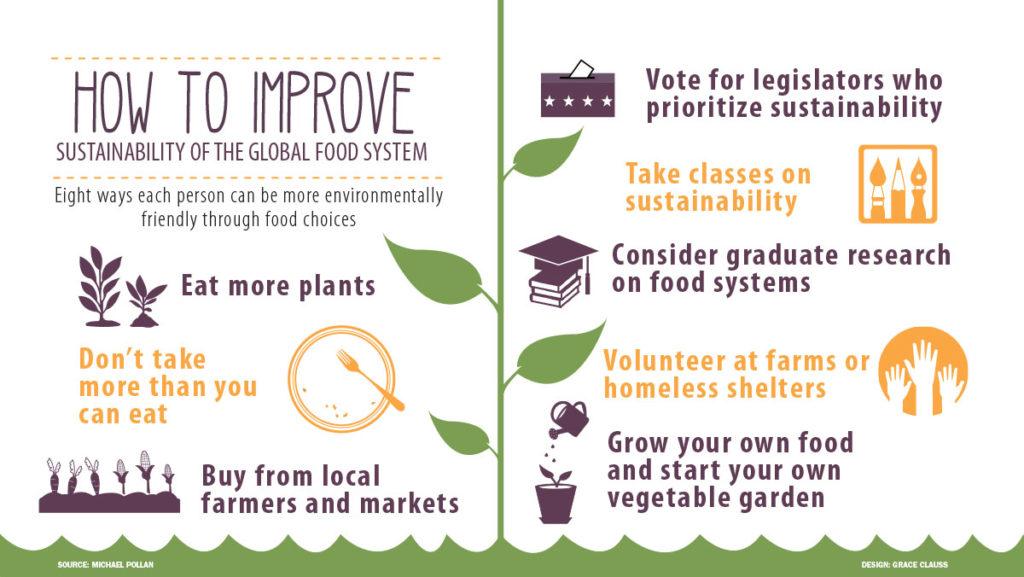There won’t be enough food. That was Thomas Malthus’s conclusion in his 1798 “An Essay on the Principle of Population,” which made famous a graph showing a linear increase in food production and an exponential increase in people (food demand). Where those two trends meet was to be the start of widespread famine. Malthus’s prophecy still dogs us. How can we feed the world without killing the planet? For many, food security is our primary environmental problem.
We should expect challenges from environmental changes underway, which will impact food security in many ways. For example, rising temperatures drive crops upslope, disrupting livelihoods and regional trade (e.g. potatoes, livestock, and tropical fruits in the Andes). Yields will decline where malnutrition and famine already loom large. As precipitation becomes more erratic, droughts become more prevalent. Floods, too. Often in the same places. This unfavorable shuffling of freshwater resources will have big implications for food systems into the foreseeable future.
Globalization poses its own challenges. “Teleconnections” link consumer decisions in one place to agriculture far away. Dietary shifts toward milk and meat drive global markets for animal feed. Feed crops then replace rainforest in the Amazon rainforest and elsewhere. Food security thus becomes extraordinarily complicated on account of globalization.
What to do? Michael Pollan suggests that new interest in food can be a route to solving broader environmental issues. We eat several times a day, after all, and raising our awareness of food choice impacts can have broader effects on attitudes and behaviors. Our choices might be personal (say, for health) but the links to larger socio-environmental systems are numerous.
Some simple things you can do:
(1) Eat down a trophic level. Meat and dairy have high land and water costs. Focusing on plants can be good for your health and the planet.
(2) Join the Clean Plate Club. Almost half the food served in the U.S. is wasted. Take less for your first portion and think, “Am I really going to eat that?”
(3) Vote with your dollars. Choose locally and ecologically produced foods to support local markets and livelihoods. Relish in the knowledge of where your food comes from, and in your connection with the farmers who produce it.
(4) Vote with your ballot. Figure out where your local legislators, congresspeople, and presidential candidates fall on agricultural policy. Make sustainable food systems a campaign issue.
(5) Take a course. Numerous IC faculty provide brilliant insights from multiple disciplinary perspectives in a variety of offerings.
(6) Consider graduate study. Food systems are a hot topic for research, meaning they enjoy relatively generous funding. For young researchers, these projects are low-hanging fruit.
(7) Volunteer. Many community organizations deal with food-system issues. Their activities range from feeding the homeless to internships on working farms.
(8) Grow your own. Even in a place like Ithaca, with short summers and cloudy skies, you can produce a lot of food in your own backyard. In fact, you don’t even need a backyard! Put some dirt in a bucket; plant some seeds; give them some water. Trade for what you can’t grow. Share your surplus with neighbors. As a livelihood, agriculture is hard. As a hobby, however, it’s easier than you think.














